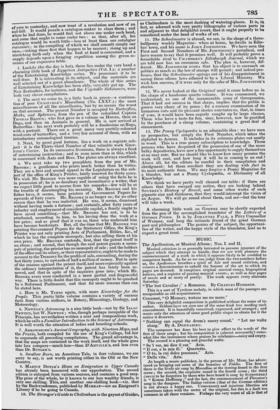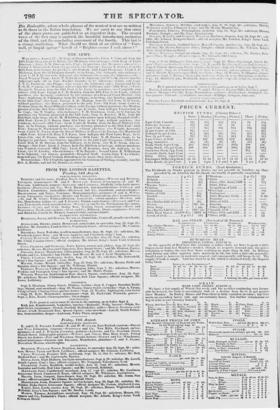The second is a pleasing and graceful waltz.
"Se '1 ver, mi dice il cor." Aria.
"Ii cor, e la mia fo." Quartetto.
"0 tu, la cui dolce possanza." Aria.
"Della vita." Aria.
At length a music publisher, in the person of Mr. Mom, has adven- tured on bringing out some of the beauties of Fidelio. The first -of these is the lively air sung byMarcelline at the ironing-board in the first scene ; the second, the exquisite round in the fourth scene ; the third (never to be forgotten by those who have heard it sung by SCHROEDF.R) is "Komm Hoffnung ;" and the last, the commencement of Florestan's song in the dungeon. The Italian Version (that of the German edition) is not always a happy one. Unnecessary and injurious liberties are sometimes taken with the metre of the original, but this is a fault too common in all these versions. Perhaps the very worst of all is that of e auboylate, where Whole phrases of the musical teitare re-written to fit them to the Italian translation. We are sorry to see that some of the above pieces are. published in an imperfect state. The second verse of the first song is omitted, the beautiful introductory recitative of the third, and the concluding movement of the fourth. This last is n strange mutilation. What should we think of an edition of "Fare-
well, ye limpid springs" bereft of "Brighter scenes rseek above ?" _ .



























 Previous page
Previous page